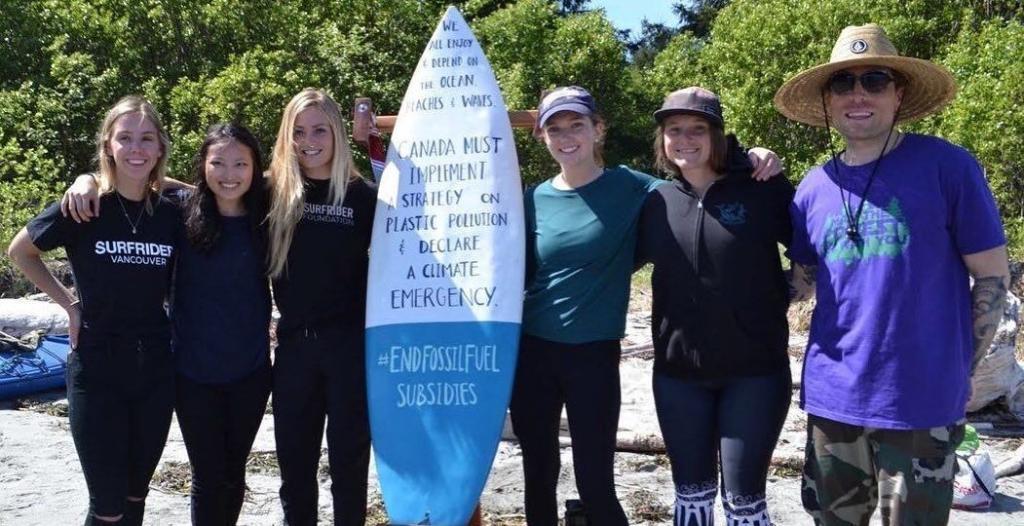
FOCS joins members of Surfrider Pacific Rim and Ocean Legacy at our annual collaborative Hands Across the Sand action to call on the Canadian and B.C. governments to #ENDFOSSILFUELSUBSIDIES to stop the proliferation of single use plastic at the source. Photo by FOCS
Humanity produces 2 billion tonnes of waste each year and this figure is projected to increase by 70% by 2050. Single use products are a key contributor to this: when not effectively recycled, they are burned, sent to dumpsites or landfills, or simply left to degrade Earth’s ecosystems and poison Earth’s oceans.
Of the 300 million tonnes of plastic produced each year, half of that goes into single use products and applications. Plastic is derived from fossil fuel extraction and manufacturing; its very production contributes to greenhouse gas emissions. The life cycle of paper-based single use products derived from trees is similarly devastating, and yet often under-estimated. Carbon released in the logging process contributes to greenhouse gas emissions, and the removal of ancient forests eliminates the ability of those forests to continue to mitigate against the worst impacts of climate change. Each year, three billion trees are cut down to make paper packaging, and that’s projected to increase by 20% over the next five years.
Less than 10% of all the plastics ever produced has been recycled, and a mere 4% of that has been recycled back into products of the same quality as the original. When it ends up in oceans or scattered on land, plastic waste breaks down into microplastics, infinitely tiny toxic pieces that are ingested by species of all kinds, including humans, with untold health consequences. Both paper and plastics manufacturing are chemically intensive, energy-intensive, and require large amounts of water – and the reality is, eliminating the majority of single use products immediately will help conserve irreplaceable resources. To achieve the goals set out in the Paris Agreement and the Aichi Biodiversity Targets, and in recognition of universal human rights, there needs to be a collective shift in the way we design and manufacture products to avoid waste.
We, therefore, call for an end to single use, throwaway commodities, and call for transformational change to our production, consumption and end-of-use systems to enable a truly circular economy. This will require commitments and effective collaboration from government, business, financial institutions and investors, the nonprofit-sector, and civil society. Collectively we can protect and promote sustainable care of forest and marine ecosystems to enable a circular economy supported by closed-loop regenerative economics.
We call on all relevant bodies to:
- Re-direct: public and private funds to support the start-up and scale-up of systems that support reusable products and circularity, and disincentivize continuation of single use commodities by increasing levies and taxes on those products and the systems that prop them up.
- Re-design to support:
- Responsible material lifecycles
- Responsible and clean production
- Responsible consumption
- Reward innovation: to help scale-up lasting solutions.
- Reparation for damage, in particular, to Indigenous peoples and people of colour, who are often disproportionately affected by modern extractive and pollutive industries.
- Restore: degraded natural habitats that have been impacted as a result of the production and disposal of products and packaging, whilst recognizing the important role that local and Indigenous communities play in conservation and restoration.
